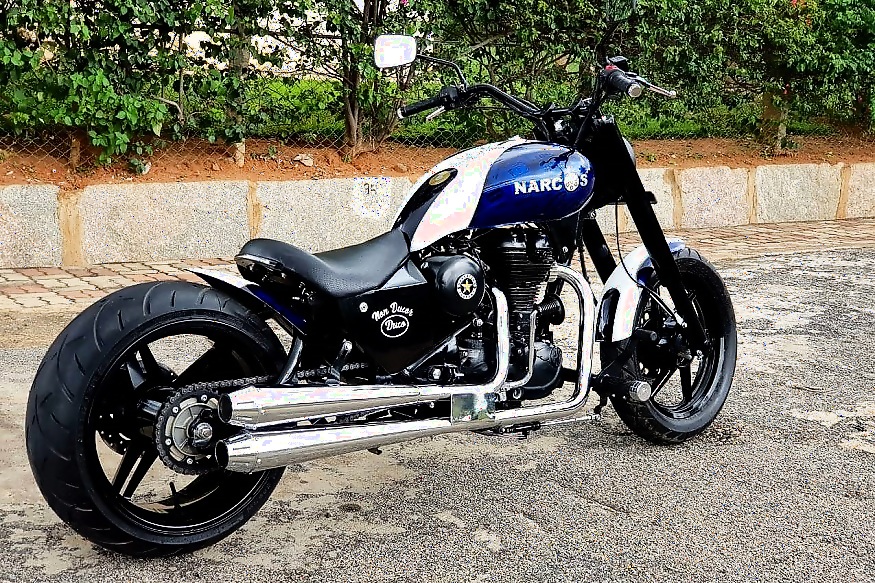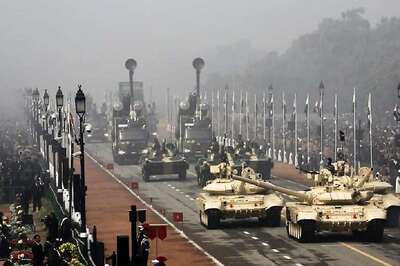
views
The Supreme Court, in a recent judgment said no motor vehicle could be altered to change the original specification made by the manufacturer that has been used for the purpose its registration. The apex court referred to an amended provision of the Motor Vehicles Act and observed that its "clear intent" was that a vehicle cannot be so altered that the particulars contained in the certificate of registration are at variance with those 'originally specified by the manufacturer'.
There is a long standing debate among the vehicle owners in authorities in India over the extent of the modification. Once the vehicle is on road and registered with RTO, most of the owners try to modify their vehicles starting from a basic tyre change to a complete makeover of a car/ motorcycle. And with this judgment, people are left wondering what can be changed and what can’t be?
Here’s a detailed analysis of the judgement of the Supreme Court, what it means and its ramifications!
Vehicle Modifications Are Now Illegal in India After This Supreme Court Order!
What does the SC judgement says?
The judgment by a bench of Justices Arun Mishra and Vineet Saran said in its verdict - "No vehicle can be altered so as to change original specification made by the manufacturer. Such particulars cannot be altered, which have been specified by the manufacturer for the purpose of entry in the certificate of registration." According to the provision of the Act, 'alteration' means a change in the structure of a vehicle.
The apex court actually sets aside a judgment of a division bench of the Kerala High Court, which earlier said that the structural alteration was permissible as per the provisions of the Kerala Motor Vehicle Rules, 1989. Kerala is known for many modified vehicles on the road. Here’s what the Supreme Court’s judgment that overturns the Kerala High Court judgment says-
“In our considered opinion the Division Bench in the impugned judgment of the High Court of Kerala has failed to give effect to the provisions contained in section 52(1) and has emphasized only on the Rules. As such, the decision rendered by the Division Bench cannot be said to be laying down the law correctly. The Rules are subservient to the provisions of the Act and particulars in certificate of registration can also be changed except to the extent of the entries made in the same as per the specifications originally made by the manufacturer. Circular No.7/2006 is also to be read in that spirit. Authorities to act accordingly.”

What is Section 52 on The Motor Vehicles Act, 1988?
The section 52 of the Motor Vehicles Act 1988 notifies about the alterations in motor vehicles. Here is what it reads-
“No owner of a motor vehicle shall so alter the vehicle that the particulars contained in the certificate of registration are at variance with those originally specified by the manufacturer: Provided that where the owner of a motor vehicle makes modification of the engine, or any part thereof, of a vehicle for facilitating its operation by different type of fuel or source of energy including battery, compressed natural gas, solar power, liquid petroleum gas or any other fuel or source of energy, by fitment of a conversion kit, such modification shall be carried out subject to such conditions as may be prescribed: Provided further that the Central Government may prescribe specifications, conditions for approval, retrofitment and other related matters for such conversion kits: Provided also that the Central Government may grant exemption for alteration of vehicles in a manner other than specified above, for any specific purpose.”
What does it imply?
Simply put, modifications such as wider tyres, bigger alloy wheels and louder horns (which deviate from the manufacturer’s specifications) is not legal. Here’s what the judgment says about altering the tyres -"amended with the purpose to prohibit alteration of vehicles in any manner, including change of tyres of higher capacity, keeping in view road safety and protection of the environment".

However, there are some changes you can do in your vehicles, as the court said that the primary focus of section 52(1) is not to alter the original specifications by the manufacturer.
What can be modified in a vehicle?
While this can have wide ramifications for the car modification/accessories industry, owners of the vehicle need not worry much. Here’s what can be changed in a vehicle –
1) You can change the colour of the vehicle as the SC has said that changing the color of the vehicle depending on the customer’s will not deter a vehicle from getting registered.
2) Minor fitments that door protectors, decals, rain guard can be added.
3) One can change the tyres in affordable cars as the manufacturers usually offer different spec tyres for base and top variant. (E.g.) Maruti Suzuki Swift Lxi comes with 160 section tyre while the Zxi comes with a 180 section tyre. So a Lxi owner can opt for 180 section tyre, as the vehicle is the same.
4) The engine can be changed, but it requires prior permission from the RTO. If the protocols are not followed, the vehicle’s registration can be cancelled.
What are the challenges?
The biggest challenge among vehicle buyers is about the ambiguity of the ruling. Case in point, if the ruling is implemented strictly, will it be applied to only new vehicles or exiting vehicles too? If it applies to the exiting vehicles, what will happen to the cars with wider tyres, structural changes and more? Also, is the ruling only limited for the exteriors of the vehicle or can one add features to the cabin?
Since the car and motorcycle accessory industry in India is quite large and so is the tyre industry, we are hoping that they will approach the government to amend the Motor Vehicles Act to allow a certain degree of modification. While safety is paramount in a vehicle and Supreme Court’s ruling ensures the highest degree of safety in vehicles, not all modifications are bad!




















Comments
0 comment